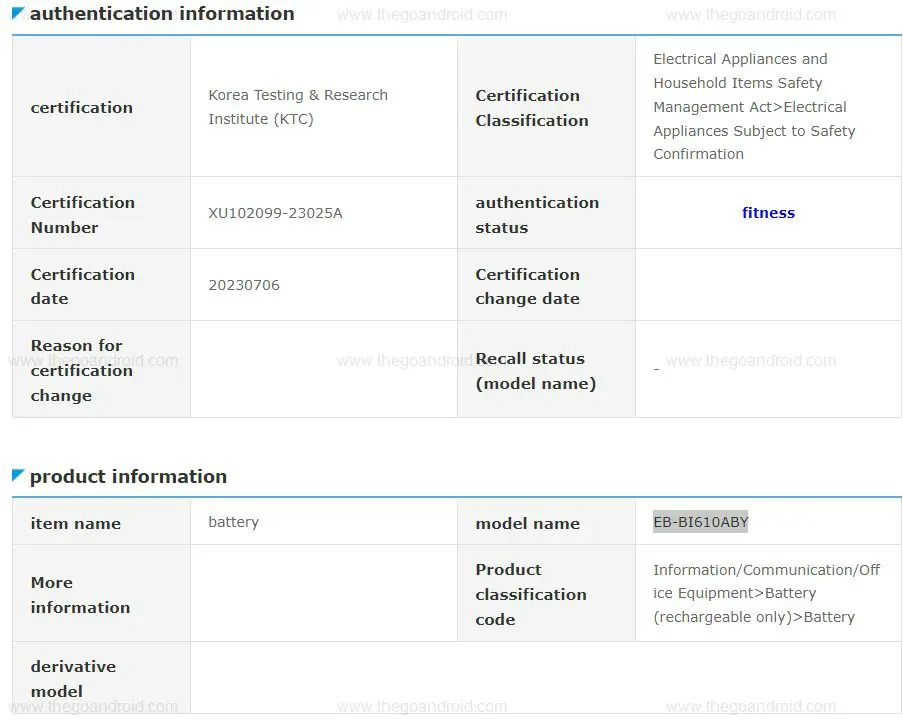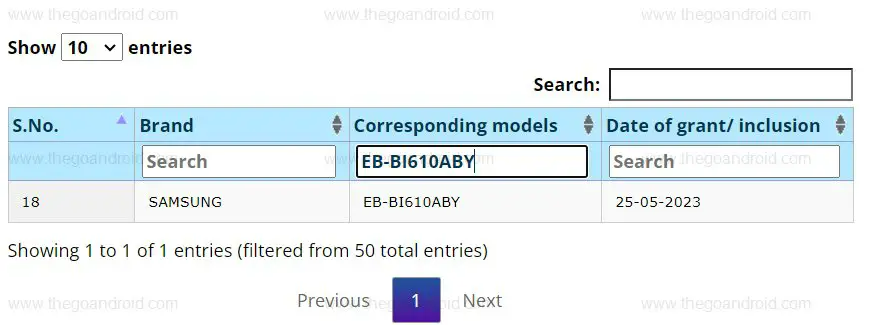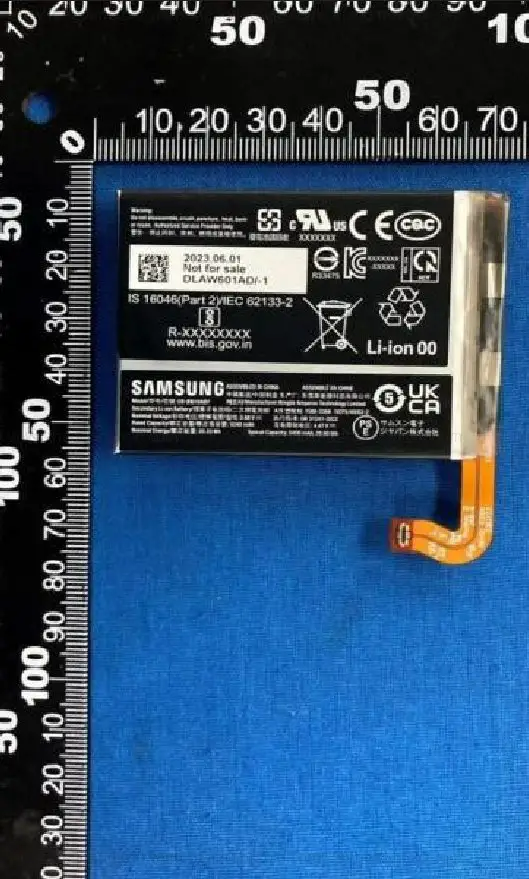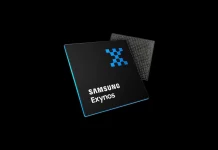Samsung has announced its next major launch event is scheduled for July 26. The highly anticipated Galaxy Unpacked event will introduce a range of exciting products, including the Galaxy Z Fold 5, Z Flip 5, Tab S9 series, and Watch S6 series. Additionally, there are reports suggesting that Samsung might also unveil an XR headset during the same event. While the XR device has not been officially confirmed, Samsung has already provided teasers for the other upcoming devices that will be showcased at Galaxy Unpacked. Adding to the speculation, a new report from GoAndroid reveals that the battery of Samsung’s XR headset has received various certifications, indicating a potential launch later this month.
Samsung XR headset’s battery receives multiple certifications

The publication has spotted a battery having the EB-BI610ABY model number in the database of the SafetyKorea certification platform. This battery seems to be a successor to the older EB-BI120ABY battery, which was speculated to power unannounced Samsung AR Glasses with mode number SM-I120. Therefore, it is likely that the EB-BI610ABY battery will be used to power Samsung’s upcoming XR headset.

The EB-BI610ABY battery has also received approval from India’s BIS and China’s CQC certification platforms. This suggests that the XR headset may be launched not only in South Korea but also in India and China.

A report that surfaced earlier this week claimed that Samsung had postponed the launch of its first XR headset by approximately three to six months. Thus, there is a possibility that the company will confirm its existence at the upcoming Galaxy Unpacked event and subsequently launch it a few months later.
Samsung’s XR headset is expected to compete with Apple’s Vision Pro, a mixed reality (MR) headset, although specific technical specifications have not yet been revealed. Reports have mentioned collaborations between the South Korean company and Qualcomm and Google for the development of this product.
RELATED:
- Samsung wants to take on Qualcomm and Google with its XR chips, says report
- Apple’s AR/VR Headset May Be Called “xrProOS” Suggesting Launch in the Near Future
- Sony and LG to Supply Initial OLEDoS Displays for Apple’s XR Mixed Reality Headset
- Apple Vision Pro: How does it comvpare with Meta Quest Pro and HTC Vive XR Elite?
- Reno 10 Pro Plus pushes Oppo to premium segment in India
(via)







